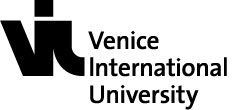F1913 Globalization, Ethics, Welfare and Human Rights
Professors
Schedule
Course description
This course approaches the issues of the core course Globalization, Ethics, Welfare and Human Rights from the perspective of the history of statistics. It is well-known that statistical indicators, such as GDP per capita to name perhaps the most famous and controversial example, substantially direct socio-economic policies at the global and national level. Development goals of international institutes as the UN, EU, or OECD are often formulated in terms of such indicators. This course aims to discuss and problematize the nature of statistical indicators and of the international institutes that construct and support them. We will take an historical approach in which we discuss their rise to prominence, and their structuring and oftenimposing role on policy debates.
Teaching approach
The course will consist of a seminar in which we will discuss key-texts on statistical indicators and subsequently engage in the analysis and presentation of indicators of particular importance in students’ home country to regulate policy debates about health, wealth and wellbeing.
Evaluation method
Students’ grade will be composed of three pillars:
1. A mid-term essay on the texts studied so far (30%)
2. Class participation (10%)
3. A final essay and presentation on an indicator of choice (60%)
The mid-term grade communicated to the Globalization Program office will be based on the mid-term essay.
Learning goals
Upon finishing this course students should be able to
- Understand the importance of statistical indicators in the structuring of international and national debates on key policy issues.
- Understand the role of international institutions in standardizing their use
- Ability to put the rise of statistical indicators in historical context
- Apply existing scholarship to the analysis of such indicators
- Be able to discuss and present academic literature
- Be able to write a scholarly essay.
Readings
Christensen, Johan. 2018. The Power of Economists within the State. Stanford: Stanford University Press. (selected chapters)
Daston, Lorraine. 2000. 'Why statistics tend not only to describe the world but to change it'. Essay review of: Desrosières, Alain: The politics of large numbers: a history of statistical reasoning. Cambridge, Mass: Harvard Univ. Press 1998.
Desrosières, Alain, 2002. The politics of large numbers: A history of statistical reasoning. Harvard University Press. (selected chapters)
Eyal, Gil and Levy, Moran, 2013. ‘Economic indicators as public interventions’. History of Political Economy, 45(suppl_1), pp.220-253.
Guillemin, F., Bombardier, C. and Beaton, D. 1993. ‘Cross-cultural adaptation of health-related quality of life measures: literature review and proposed guidelines’. Journal of clinical epidemiology, 46(12), pp.1417-14
Halffman, Willem. 2005. ‘Science-policy boundaries: national styles?’. Science and Public Policy, 32(6), pp.457-467.
Jasanoff, S., 2009. The fifth branch: Science advisers as policymakers. Harvard University Press.32. (selected chapters)
Laskaridis, Christina. 2019. ‘The IMF’s Debt Sustainability template: The making of a public tool as ‘more of an art than a science’.’ Forthcoming in OEconomia: History, Methodology, Philosophy.
Morgan, Mary S. 2001. Making measuring instruments. History of political economy, 33(5), pp.235-251.
Porter, Theodore M. 1994. ‘Making things quantitative’. Science in context, 7(3), pp.389-407.
Rametsteiner, Ewald, Helga Pülzl, Johanna Alkan-Olsson, and Pia Frederiksen. 2011. ‘Sustainability indicator development—Science or political negotiation?’. Ecological indicators 11, 1: 61-70.
Schmelzer, Matthias. 2016. The hegemony of growth: the OECD and the making of the economic growth paradigm. Cambridge University Press, 2016. (selected chapters)
Sen, Amartya. 1994. ‘Human Development Index: Methodology and Measurement.’ (1994).
Speich, Daniel. 2011. ‘The use of global abstractions: national income accounting in the period of imperial decline’. Journal of Global History 6.1 (2011): 7-28.
St Clair, A.L., 2006. ‘Global poverty: The co-production of knowledge and politics’. Global Social Policy, 6(1), pp.57-77.
Velkar, Aashish, 2008. ‘Imagining Economic Space in Colonial India,’ Research in the History of Economic Thought and Methodology 36B: 109-128




















